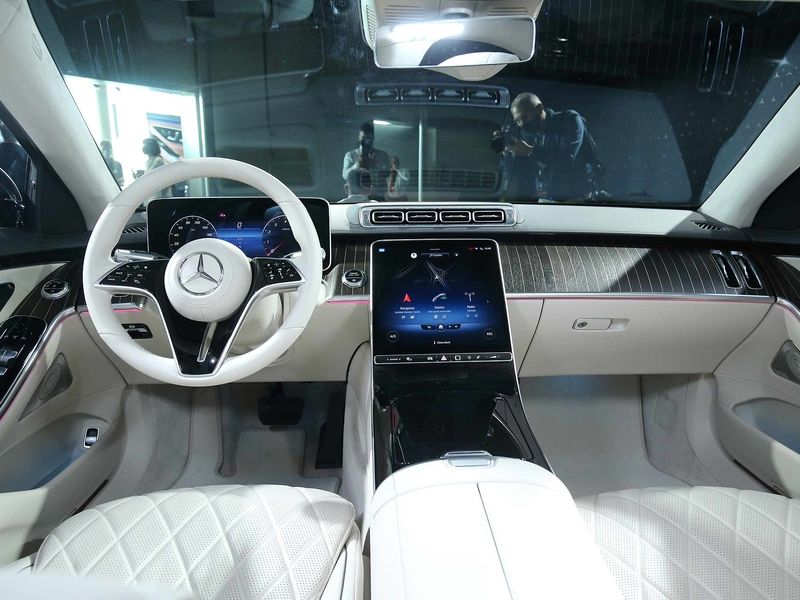
SINDELFINGEN, Germany — Mercedes-Benz’s newly redesigned S-Class luxury sedan, revealed last week here, represents a big step forward in the automaker’s eyes-off autonomous driving technology.
But the new S-Class faces a real dilemma: Major markets such as the United States are not ready for the technology yet.
Germany is.
Three years ago, government leaders enacted landmark legislation permitting motorists to hand over full driving control of their vehicle to its on-board autonomous systems if specific conditions are met. But virtually every other country in the world is still grappling with the question of how to safely roll out the technology on their roads.
Markus Schäfer, head of technical development at Mercedes-Benz Cars, said the carmaker has a lot of persuading to do, given the patchwork of legal jurisdictions both in Europe and abroad that are still evolving.
“It’s trying to read a crystal ball,” Schäfer told reporters at the presentation of the luxury sedan here, where the S-Class is built. The ongoing discussion could even result in changes to the technology. “It’s possible that legislators come up with fresh hurdles that in the end require further sensors,” he said.
The new S-Class could become the first car to offer motorists Level 3 autonomy, which means the car can drive itself under specific conditions, when Mercedes launches its Drive Pilot feature in Germany later this year.
The feature is currently restricted to highway traffic jams, but it will allow drivers to legally divert their attention from monitoring the road — an aspect not allowed under Level 2 systems such as Tesla’s Autopilot.
Should conditions depart from that narrow operating envelope, the car will indicate that drivers have 10 seconds to assume control before the vehicle turns on its emergency lights, gradually decelerates and comes to a controlled stop.
Mercedes is still finalizing series development of the feature, which as things stand, cannot be guaranteed to operate under all weather conditions.
The carmaker is in a tight race with its archrival BMW, whose stated goal is to premier eyes-off driving in its new technological flagship, the iNEXT electric SUV, due to launch next year.
Volkswagen Group’s premium brand Audi had hoped to beat both luxury competitors to market three years ago when it launched its flagship luxury rival, the A8 sedan.
But global regulators were in no rush to approve the technology until they were convinced it did not pose a safety risk.
Audi’s setback serves the industry as a cautionary tale.
By the time that a homologation rules-setting body finalized a process to approve Audi’s system, Audi said it was too late to make the necessary changes in the A8.
“The question is how do regulations develop?” said Schäfer.
Questions of liability are central to the issue, since manufacturers, rather than drivers, are expected to be held responsible in collisions. That shift in responsibility is a problem unique to Level 3.
But practical issues are also involved in rolling out the technology.
Schäfer noted that safety laws in some parts of the United States require that, when a law enforcement vehicle is parked on the right shoulder, drivers in the slow lane must change lanes to prevent any risk of harm to a police officer. As the Mercedes Drive Pilot is not capable of performing such a maneuver on its own, this presents an additional problem.
Schäfer confirmed the company is in discussions with U.S. authorities over a more airtight regulatory framework.
He declined to estimate a time frame for bringing conditional autonomy to the United States. The benefits need to be weighed against the legal risks, he said.
Sources at other German carmakers agreed that the litigation-friendly American legal system is a core concern, along with the U.S. system of self-certification. By comparison, Europe’s decision to homologate a vehicle’s various systems provides greater protection from damage claims, they said.
“There is an open mind in the U.S. when it comes to regulations,” Schäfer said. “You just have to consider what the consequences might be should something happen there.”